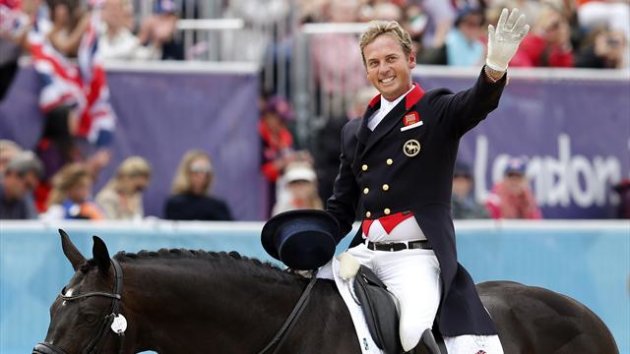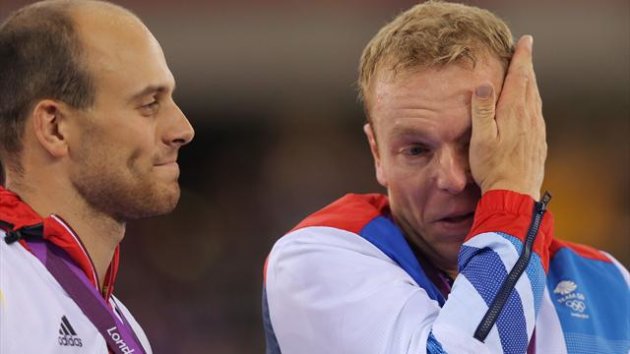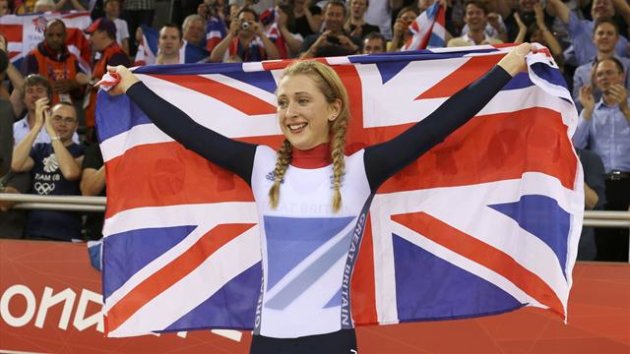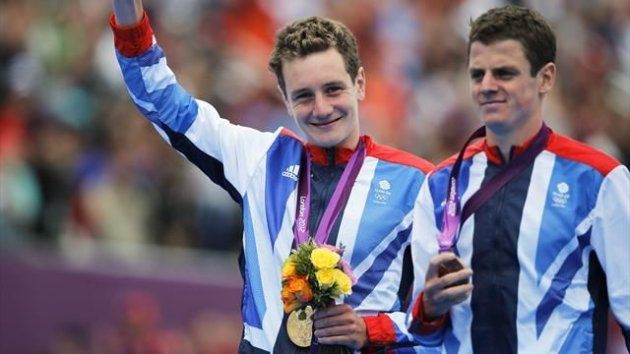Britain celebrates biggest Olympic gold rush since 1908
Great Britain is celebrating its biggest haul of Olympic gold since 1908 at a London Games that just keeps on giving for a host nation once famed for its love of plucky losers and heroic failures.
Not since the first London Olympics, when just 22
nations took part compared to the present 204 and when much of the world
was ruled from the British capital, have the country's athletes stashed
away so much gold and so many medals.
Yorkshire in the north of England can claim more gold medals than Britain's archrival Australia who have won just three so far.With five full days remaining, Britain had taken 22 golds and 47 medals from 13 sports, if track and road cycling are considered separately. Britain is third in the medals table.
"This has really turned into a golden summer for Team GB and for the whole of the UK," Prime Minister David Cameron told reporters.

Sauntering across the triathlon finish line in leafy Hyde Park, the Union Jack flag draped around his shoulders, Alistair Brownlee secured Britain's 19th gold to equal the tally from Beijing four years ago that ranked as the previous best in a century. His brother Jonathan finished third.
The immaculately turned out dressage team of Carl Hester, Laura Bechtolsheimer and Charlotte Dujardin took the total to 20 golds at the Greenwich Park equestrian arena and Laura Trott added another in the women's track cycling omnium event.
Chris Hoy then rounded off a day of triumph with the seventh Olympic medal of his career, and sixth gold, to rival the tally of compatriot, Tour de France winner and London time trial champion Bradley Wiggins.
The victory put Hoy ahead of Wiggins, who has four titles, on 'gold difference' as Britain's most decorated Olympian.
In Beijing, Britain ended up fourth overall in the medals table with 47 medals from 11 sports.
That was the country's best performance since 1908, where Britain as hosts won 56 golds and 146 medals in total, but in Beijing the tally of 19 gold was not reached until the final weekend.
"Our athletes' efforts to bring home the bling have delivered a tally not seen by any British team in over three generations," declared London Mayor Boris Johnson, exulting in the scaling of 'epic heights'.
"But it's not over yet. I join the nation in its hope that Team GB is set to deliver more sporting brilliance to come."

At least four more medals are assured in boxing, where losing semi-finalists get bronze.
British Olympic Association chief executive Andy Hunt, the Chef de Mission of 'Team GB', celebrated a "remarkable milestone".
"What has been achieved today is the result of a shared commitment made by 541 athletes, representing 26 sports, to compete as One Team GB, and to do so in a manner that would make our country proud," he said.
"It is the result of years of sacrifice and struggle, underpinned by the selfless contributions of coaches, team mates, parents, volunteers, administrators and the British public."
It was a very different story only 16 years ago. At the 1996 Atlanta Games, Britain walked away with just one solitary gold in rowing for Matthew Pinsent and Steve Redgrave, and took 15 medals in total.
In Barcelona in 1992, they managed five golds.
There were celebrations of individual successes then but nothing like the wave of jubilation sweeping the country now as one victory follows another in front of flag-waving crowds roaring their athletes on.
Newspaper front pages have reflected a growing sense of pride and patriotism, particularly after the past weekend's 'Super Saturday' when Britain celebrated its greatest single Olympic day in living memory.
"It was the greatest day in sport I have ever witnessed," said Games chairman Seb Coe, himself a double Olympic gold medallist for Britain in 1980 and 1984.

The British Olympic Association is planning a parade on open-topped buses through London on Sept. 10, after the Paralympics end, for what will be the country's most successful Olympic team of the modern era.
A spokesman said the details had yet to be finalised and they were working with the Mayor's office, Transport for London, the park authorities and various local boroughs.
The BOA was careful to avoid any precise medal target before the Games, the third to be held in London, settling instead on "more medals from more sports in more than a century."
Those include the first medals in triathlon, the first individual medal in women's gymnastics by Beth Tweddle with a bronze in asymmetric bars, and the first dressage title.
On Monday, the country's show jumpers took their first team gold in 60 years.
Source
